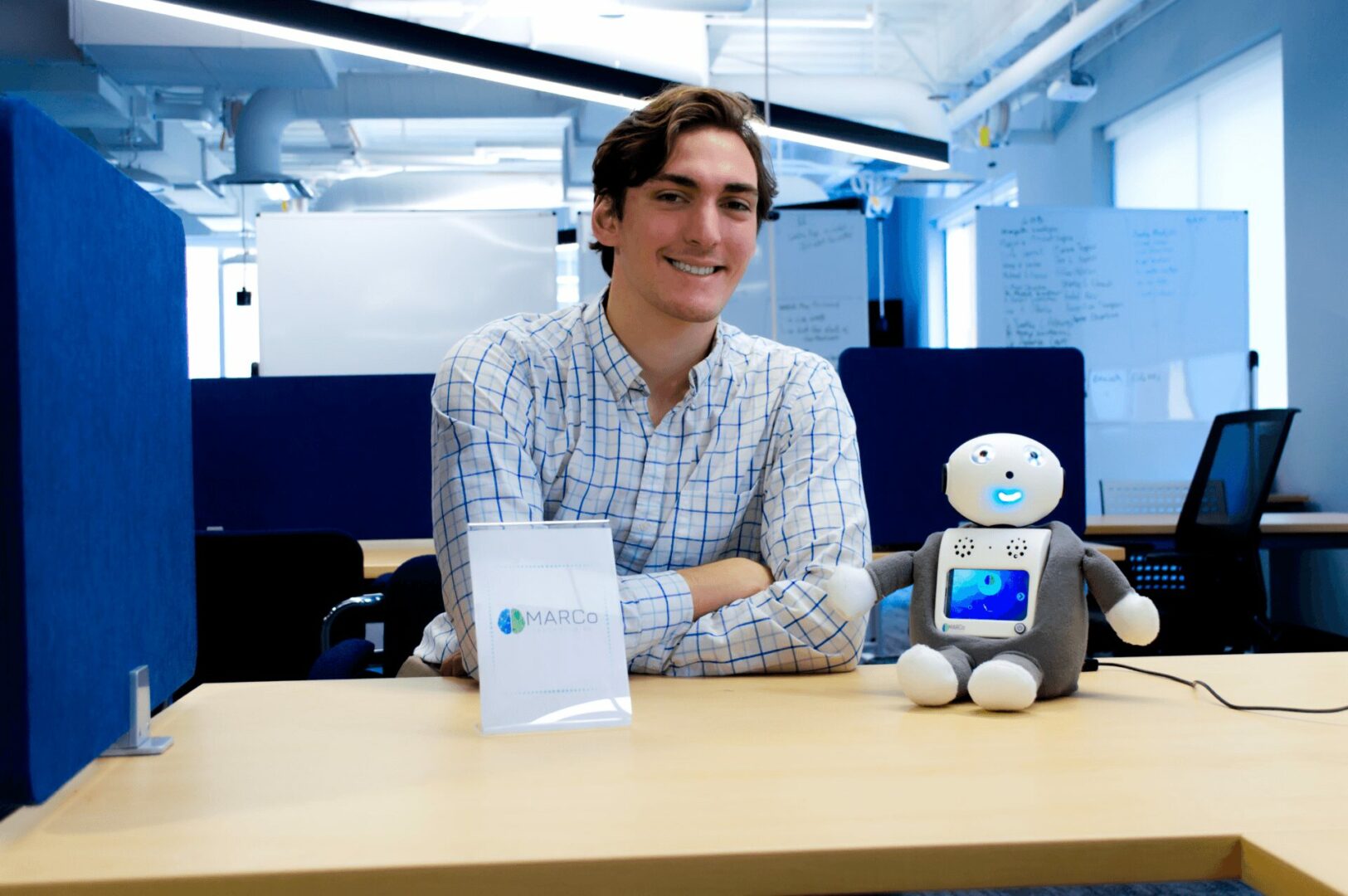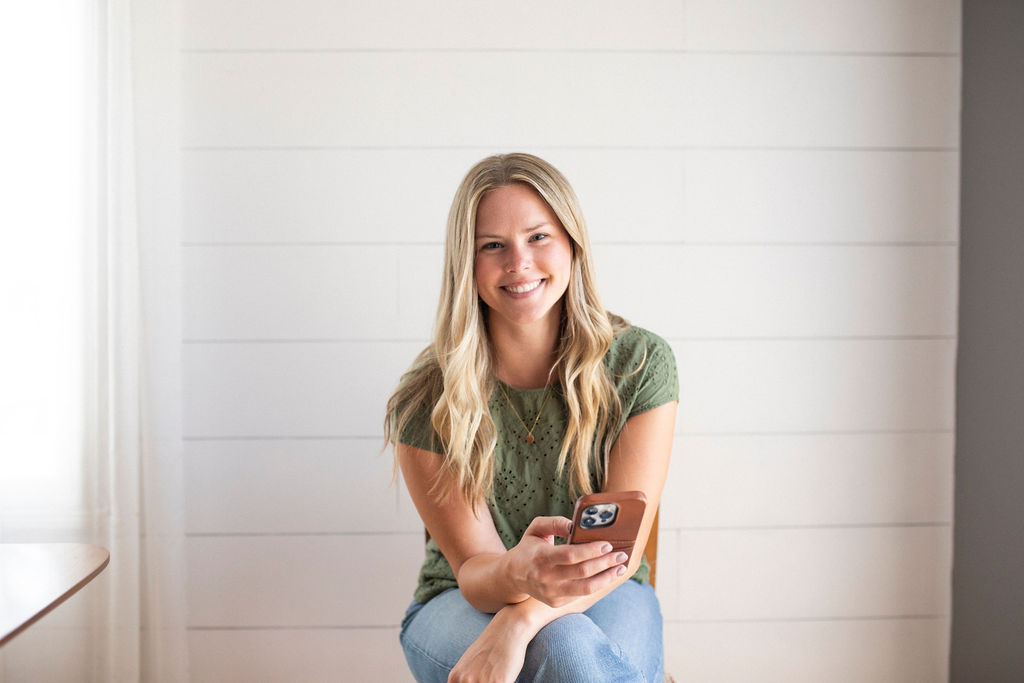Alright – so today we’ve got the honor of introducing you to Jacob Boyle. We think you’ll enjoy our conversation, we’ve shared it below.
Jacob, we are so appreciative of you taking the time to open up about the extremely important, albeit personal, topic of mental health. Can you talk to us about your journey and how you were able to overcome the challenges related to mental issues? For readers, please note this is not medical advice, we are not doctors, you should always consult professionals for advice and that this is merely one person sharing their story and experience.
I’ve likely struggled with my mental health longer than I can remember, but the first instance I can pinpoint noticing “something was wrong” was at my 8th grade dance. In the middle of all of my friends and peers having an absolute blast all around me – gleefully singing the uncensored original lyrics to CeeLo Green’s “Forget You” in front of teachers powerless to stop them – I felt at an absolute low; lonely when I wasn’t alone, empty on a night I was supposed to be full of life. And that feeling would continue the next day, and the next day, and the next day…
Shortly after that, I started to notice how I would have “scary Sundays,” where every weekend I would just be stuck in bed with my heart racing, fears running through my head, shaking all over.
I had no idea what these things meant, until one day in freshman year of high school, my dad disappeared without explanation. It would be another 4 months before I saw him again for a few weeks before he disappeared again, and it would be another several months before I learned that the places he was disappearing to were psychiatric hospitals. He was struggling with severe chronic depression, OCD, and suicidal tendencies.
But even knowing what he was going through, I still hadn’t placed it that I was going through the same things – even when I started self-harming sophomore year of high school, or planning to end my own life senior year. It wasn’t until my track coach noticed fresh cuts on my arm one day after practice and dragged me to the school therapist’s office that I understood that what I was going through wasn’t just me being “different” or “a bad person” – these were actual conditions affecting me.
It was also the first time I understood that there was hope to get better and actual ways to deal with the challenges I was struggling with. I learned that therapy wasn’t just for “crazy people”, but to help with exactly what I was going through. I learned that the thoughts and feelings I was experiencing weren’t unique and alien, they didn’t mean there was something “wrong” with me, but were something that so many others around me also were going through.
I wish I could say that experience turned everything around, that all of my mental health issues were fixed and I’ve lived a wonderfully happy life since. In reality, in the 9 years since I first set foot in my school therapist’s office, my mental health struggles have only gotten worse and more severe, but I have managed and persisted stronger and better than ever because, at that moment, I had found what would keep me strong through it all: the others I surround myself with.
That doesn’t necessarily just mean that I rely on others to give me support when I need it; its’ taken many forms over the years.
Sometimes it’s been my sense of commitment to others: in December of 2019, I was planning to take my own life, but as I was going to go through with it, my friend called and asked if I could pick him up from the train station that evening. As stupid as it may sound, my sense of commitment to not let him down or be a bad friend outweighed the depressive and panicked thoughts that were driving me to want to not be around anymore, and I managed to get through the day and get help just because I didn’t want to be a bad friend.
Sometimes it’s been my desire to not let my struggles cause second hand pain to the ones I love. Whenever I have those dark, depressing thoughts of self-harm or suicide, what brings me back to reality and giving me the strength to persist is thinking about just how horribly it would affect my wife, my sister, my parents, my best friend. Whenever I struggle with those thoughts, I close my eyes and picture how they would react, the depths of grief and despair that they’d suffer, and it fills me with a fire to make sure that they never have to go through that.
But most of all, it’s been my desire to be an image of hope for others – if I can go through the absolute lowest of lows in my mental health, and I can make it through and things can get better for me, then there is hope for everyone. Especially running a mental health company, on social media and in all of our communications, I don’t hold back from sharing my struggles and my story. But I don’t want our followers to see the me that is still broken, still struggling. I want them to know that it’s possible to get through all of that, to have hope, to get better and lead a happy, successful, beautiful life.

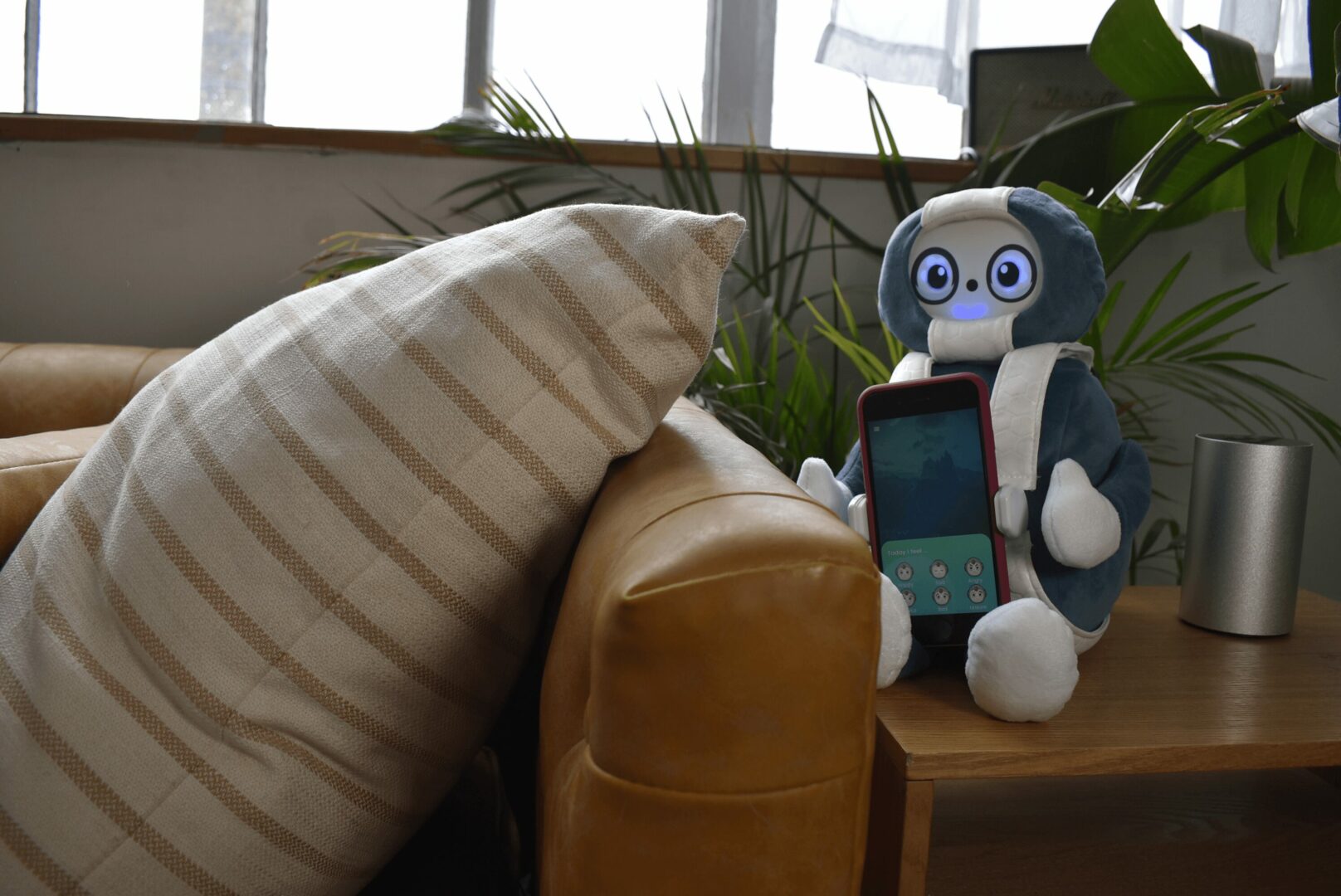
Thanks for sharing that. So, before we get any further into our conversation, can you tell our readers a bit about yourself and what you’re working on?
I’ve always said that I’ve had two “themes” follow me my entire life, one very personal and one professionally, that have lead me to where I am today, whether I liked it or not:
– Robotics (professional)
– Mental health (personal)
On the professional side, I have been working on robots since the 6th grade. At first, my experiences with robots was just for school projects, FIRST robotics club, and then personal hobby. But then, in the summer after my freshman year of college, I was picked up by an advanced robotics startup to be the lead engineer on an advanced robotics program for the US Navy. I worked like crazy for two years between full-time school and full-time work on this project, thinking “this was what I was meant to do” with my skills and talents, and believing that this was for a good cause – the stated purpose of the project was to develop robots to defuse explosives remotely and save lives.
But, on the day of delivery of these robots to the Navy, the program manager picked up the robot I’d poured my blood, sweat, and tears into for two years, then picked up a grenade, held them together and said “when do I get to do this and throw this through a terrorist’s window?”
It was then that I learned the ultimate purpose of the project was not to develop bomb-defusing robots, but to build robot bombs. I felt betrayed, and worse, like I had contributed to the worst of humanity, the worst of technology, by putting all of my efforts into this.
At the same time, the major personal theme of my life, mental health, was seriously coming to a head. I’ve struggled with my mental health for as long as I can remember, and knowing the absolute struggles I’d been through, I always made it a personal mission of mine to be there for the people I saw struggling with their own mental health, to be someone who could support them when nobody else could or even knew what was going on. That became impossible while working for this robotics company, since I had full time school, a full time job three states away, and then had to commute for that job ANOTHER three states away in the opposite direction to go to the naval base we worked with.
So on the day where I delivered our robots and found out what they were actually to be used for, I had to drive back 4 hours from Maryland to my school in New Jersey, only to see when I arrived back that one of my closest friends had sent me a Facebook message that they were having suicidal thoughts and I was the only person they had told. And I had completely missed this because of my job developing weapons.
It was that moment I had a soul searching moment. I knew I was putting my skills and talents in technology and robotics to the wrong use, harming instead of helping. At the same time, there was a SEVERE need to make sure that my friends and family, and all those I cared about, could get the mental health support I knew they desperately needed but couldn’t get (because of no access to therapists, high costs, stigma, bad experiences, long waitlists, etc.).
And that’s when I conceived the idea of my company MARCo Health. MARCo Health ensures that anyone struggling with their mental health has 24/7 access to a “someone to talk to” by creating compassionate, therapeutic robot companions named MARCo: the Mental-Health Assisting Robot Companion. MARCo is a teddy-bear sized plush robot friend with AI trained in Cognitive Behavior Therapy, Dialectic Behavior Therapy, Behavioral Activation, and Executive Function Coaching to deliver personalized, evidence based conversations and activities to anyone struggling with their mental health. But our core tenet is that robots and AI should NEVER replace human interaction, which is why MARCo is designed to pair with mental health practices and professionals to expand the reach and efficacy of their care, while reducing the burden on therapists, psychiatrists, counselors, and social workers.
And while we work mainly with health systems, schools, and communities to increase access to care and connect MARCo to the professionals who can be the human-in-the-loop, we also see a serious need of individuals who need additional mental health reinforcement for themselves or their families, and need low-cost access to this kind of support.
That’s why we are launching in the coming months “MARCo-Lite”, a highly affordable model of our robot that’s perfect for personal or family home use. We are still open to early access testers until at least September 25th, where anyone who registers can “name their price” to get MARCo and keep it. Anyone interested in learning more about MARCo OR pre-registering for the “name your price” plan can contact us at hello@marcohealthtech.com or on our website www.marcohealthtech.com
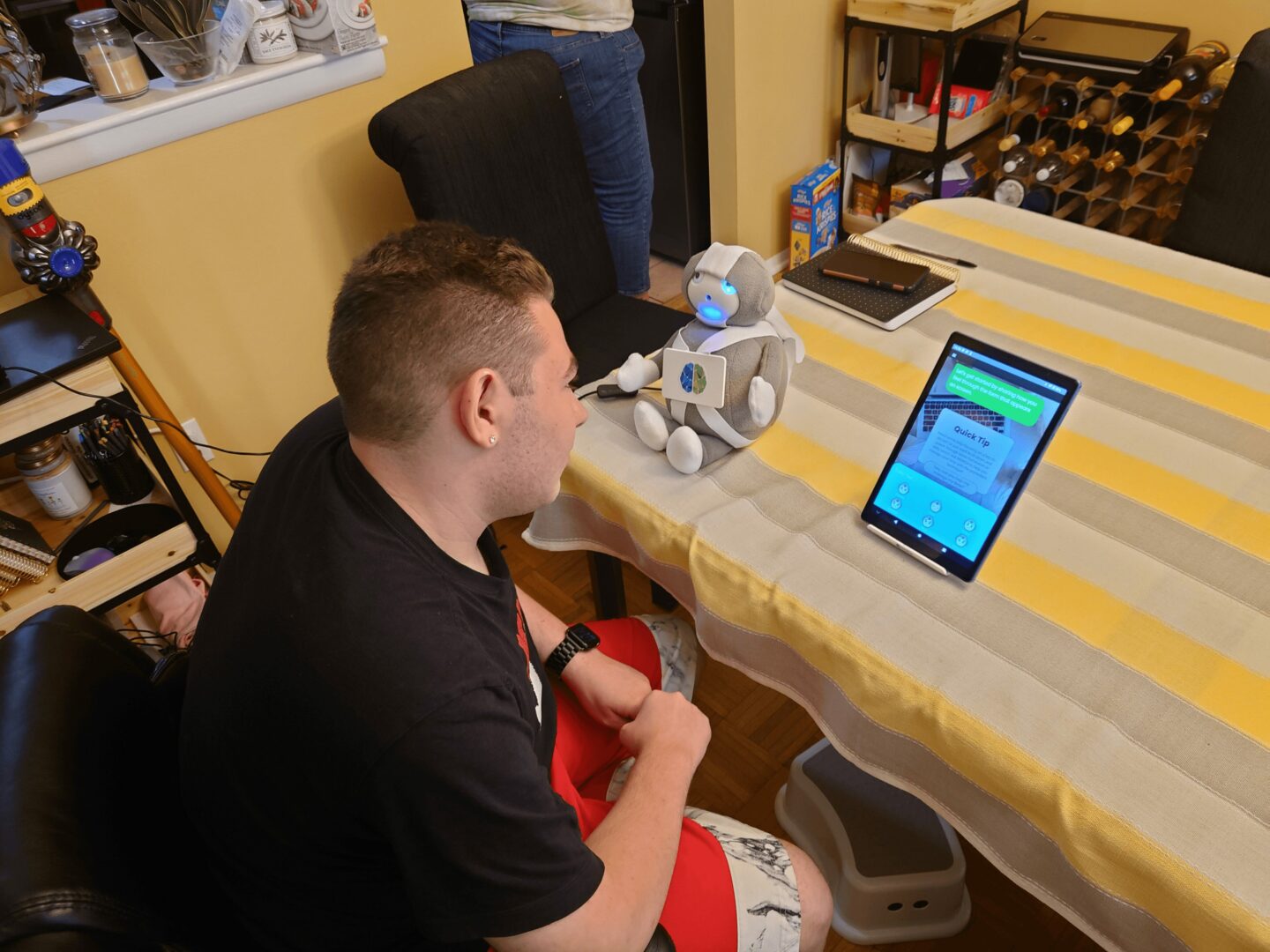
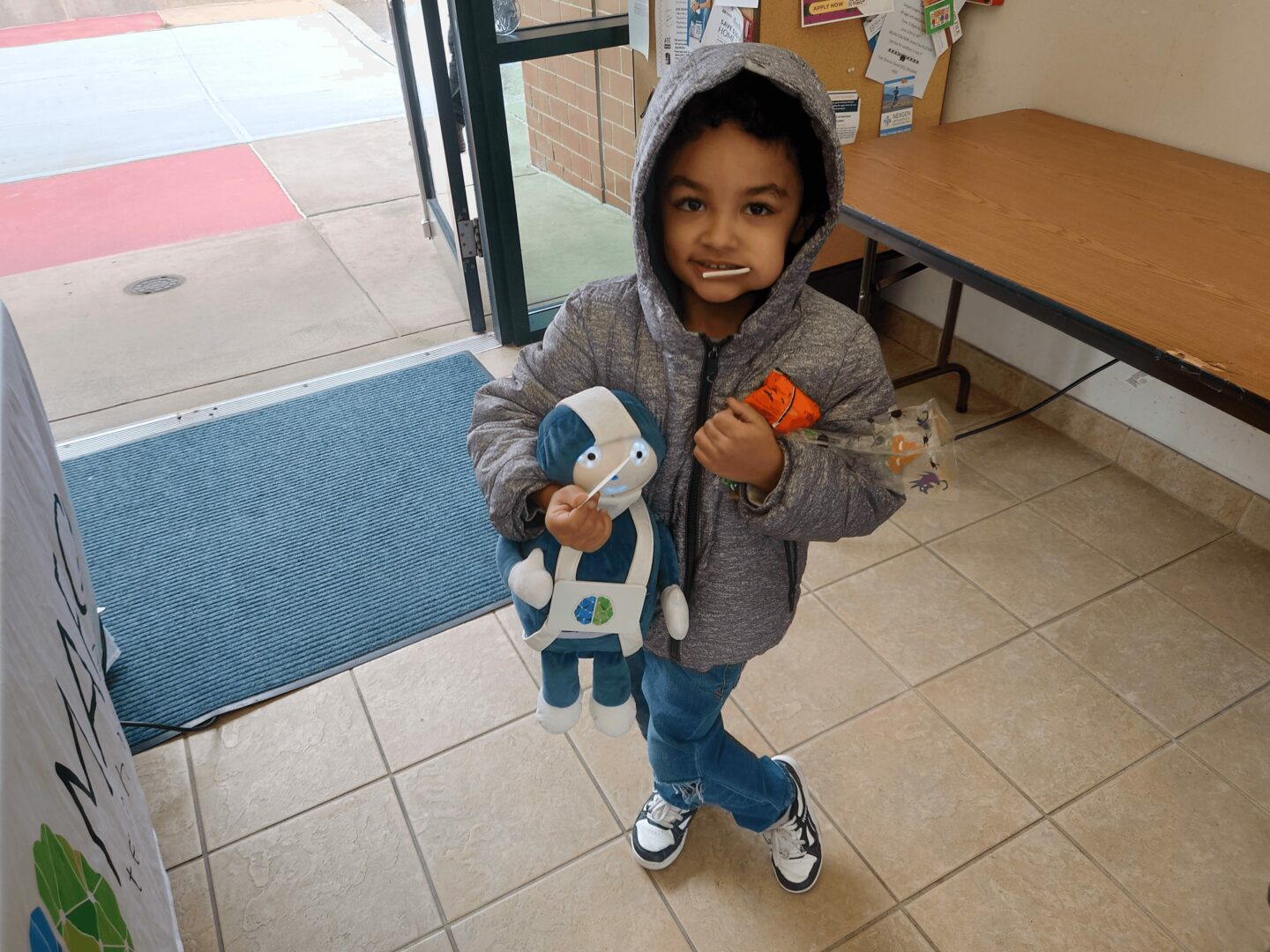
Looking back, what do you think were the three qualities, skills, or areas of knowledge that were most impactful in your journey? What advice do you have for folks who are early in their journey in terms of how they can best develop or improve on these?
1) Remember what’s really important – as a founder of a company, there’s a huge cultural pressure to say that this is the most important thing I’ll ever do, and define myself solely by this company. And this pressure causes immense amounts of damage to my mental health. In reality, a company just exists to make money, and possibly have a positive impact if it’s done the right way. There’s a million other ways to do both of these things if it doesn’t work out, and running a company can easily be replaced with other meaningful, fulfilling activities. What can’t be replaced are the people in your life, the moments you share with them, and the memories of what means the most to you. Don’t be afraid to prioritize spending time with your family, friends, and loved ones over working that extra hour.
2) “Be open to anything” – while I got this quote from a former partner who stole $25,000 from me and nearly destroyed me and my company, the message has had immense value in my personal and professional journey. I used to have a very one-tracked mind on what I wanted for my life and my company, and would ignore or shy away from conversations or events that didn’t quite match what I immediately thought would further me down that track. But once I started loosening up, being open to “anything”, it opened so many doors to success, and even just meeting incredible people I now call close friends. It’s good to have a plan, but don’t shut out things in your life just because of that plan.
3) Don’t ever be afraid to ask for help – whether that’s personal or professionally, if you need any kind of help or support, do NOT be afraid to ask and keep asking. You will definitely hear “no” more than a handful of times, but hearing “no” 100 times and then getting one “yes” that changes your life around 1,000,000 times for the better is better than never asking and struggling seriously in silence. If you’re an introvert like me or have serious rejection anxiety (also like me), start with small steps to build up your resilience on this.
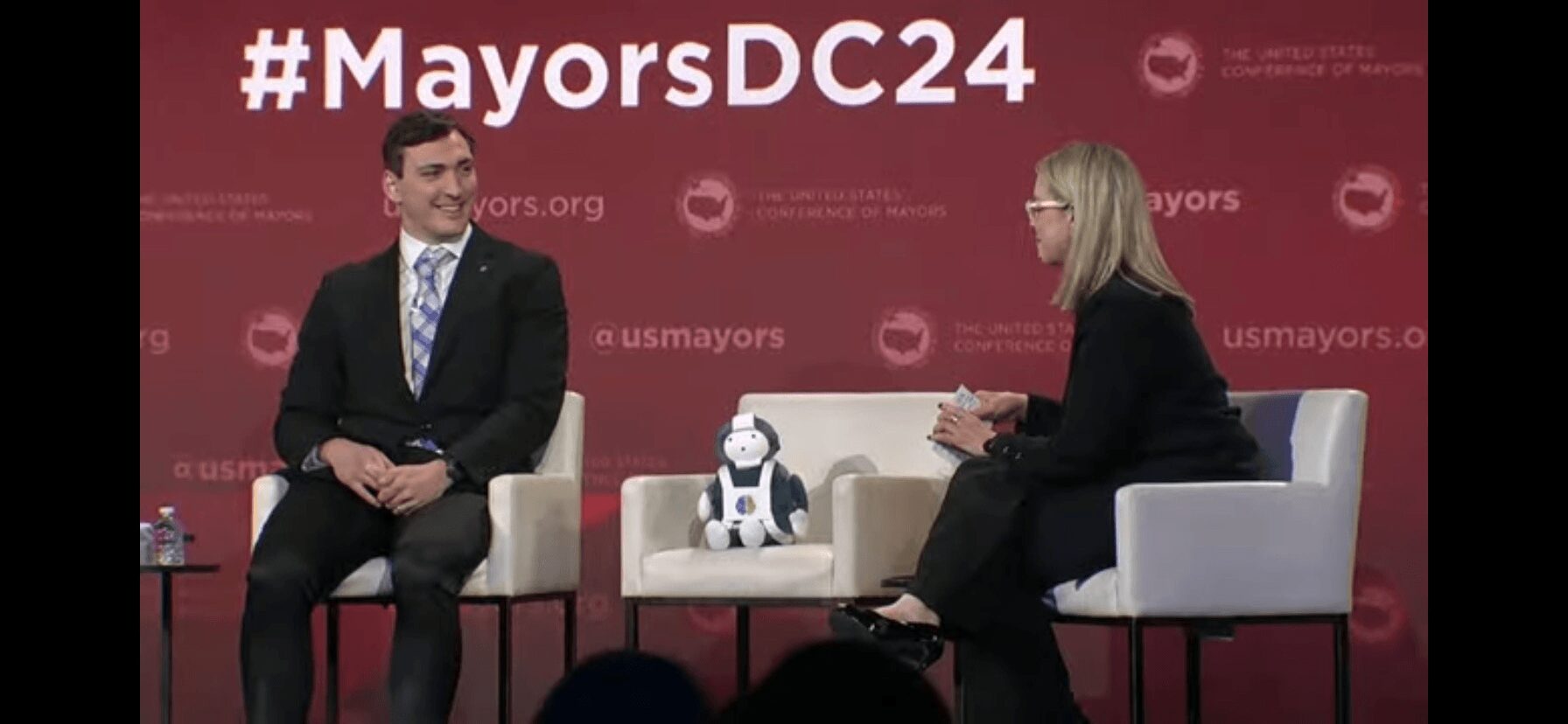
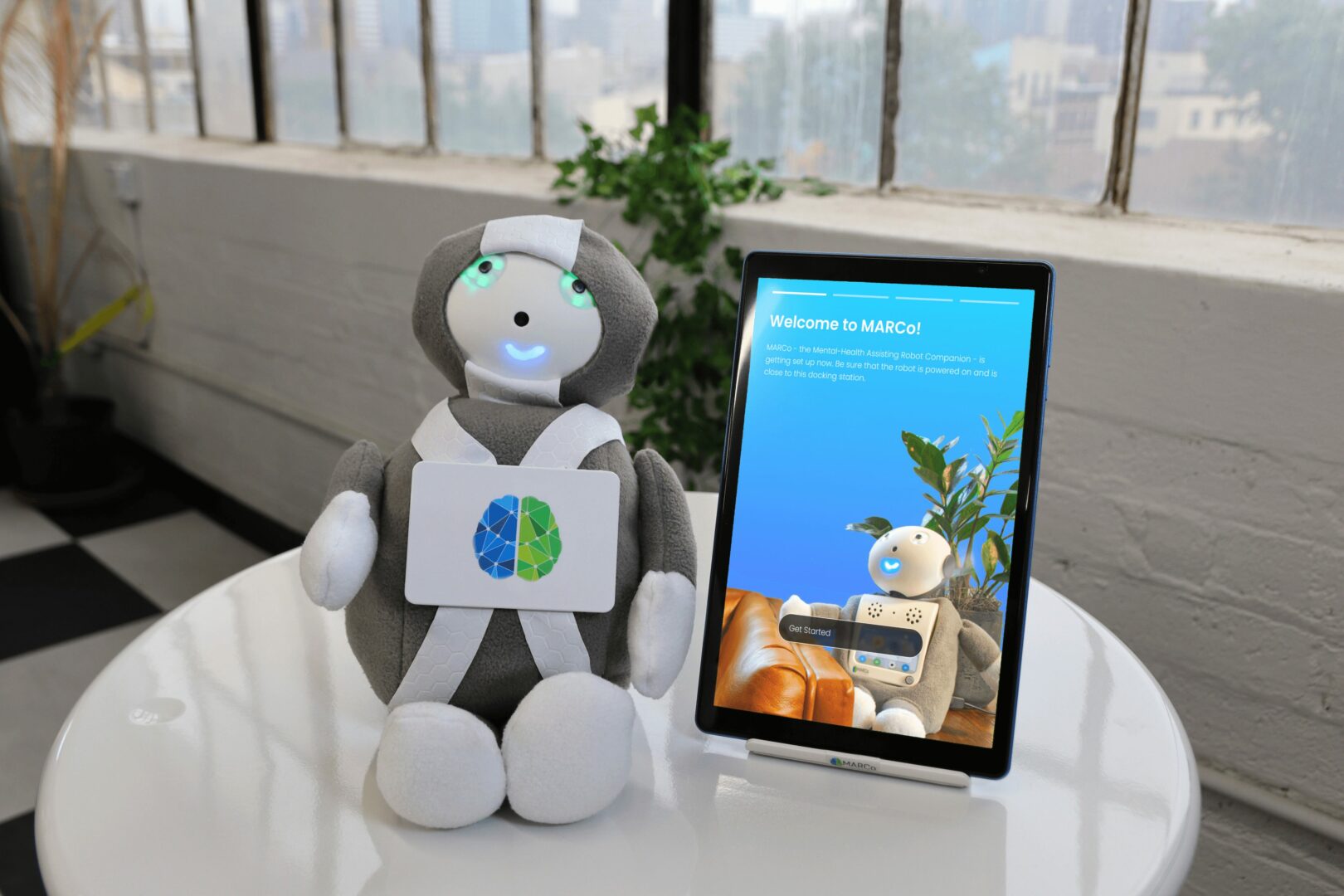
Any advice for folks feeling overwhelmed?
When I get seriously overwhelmed, I have three steps that help me:
1) I go for a run, which is my immediate way of coping and removing myself from the pressure
2) I think back over all the other times I have been seriously overwhelmed in my past, all the “the world is ending” feelings and moments, and remember that I made it through those and have gotten here stronger than ever because of it.
3) I remind myself what’s really important, and that so many things that come up feeling like the top priority don’t actually matter in the grand scheme of life. For me personally, as a Catholic, one thing that has really helped with this is St. Ignatius’ teachings of “disordered attachments”, an idea that we need to remind ourselves that all of the things in this world – possessions, money, titles, jobs, achievements, body image, etc. – are here to serve us, not the other way around. When we find ourselves overly prioritizing these things to the point where it’s causing us serious anxiety, or taking us away from what really matters (our families, ourselves, our relationship with a higher power), then they have become “disordered” and we are really serving them. This kind of thinking helps me to prioritize what really matters when I get overwhelmed and allow myself to let things that otherwise I would think are necessary in my life to slide to the side.
Contact Info:
- Website: https://www.marcohealthtech.com
- Instagram: @marcotherobot
- Facebook: https://www.facebook.com/people/marcotherobot/100064155458336/
- Linkedin: https://www.linkedin.com/in/jacob-boyle-9341a4153/
- Youtube: https://www.youtube.com/@marcotherobot
- Other: Store: shop.marcohealthtech.com
Email us: hello@marcohealthtech.com
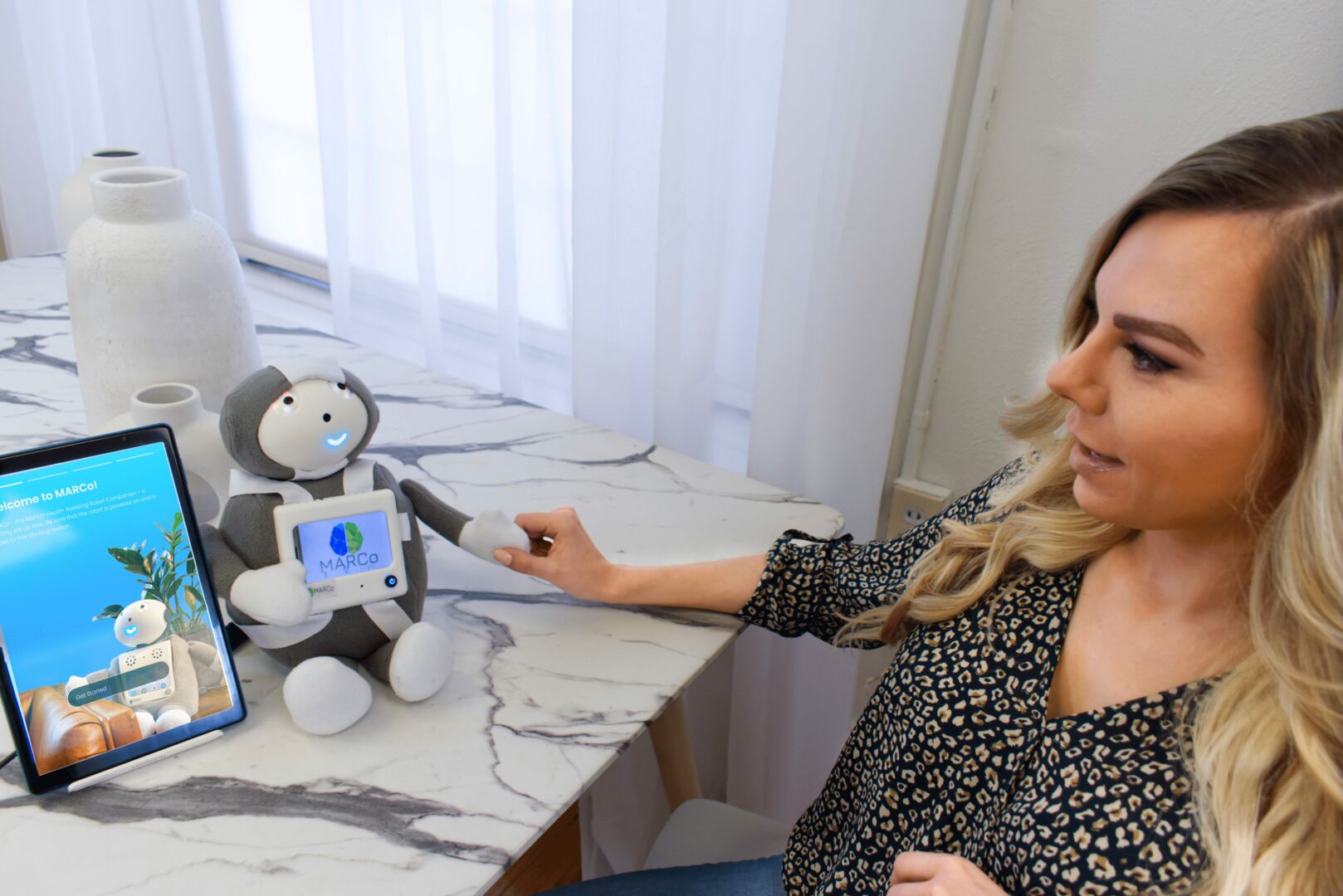
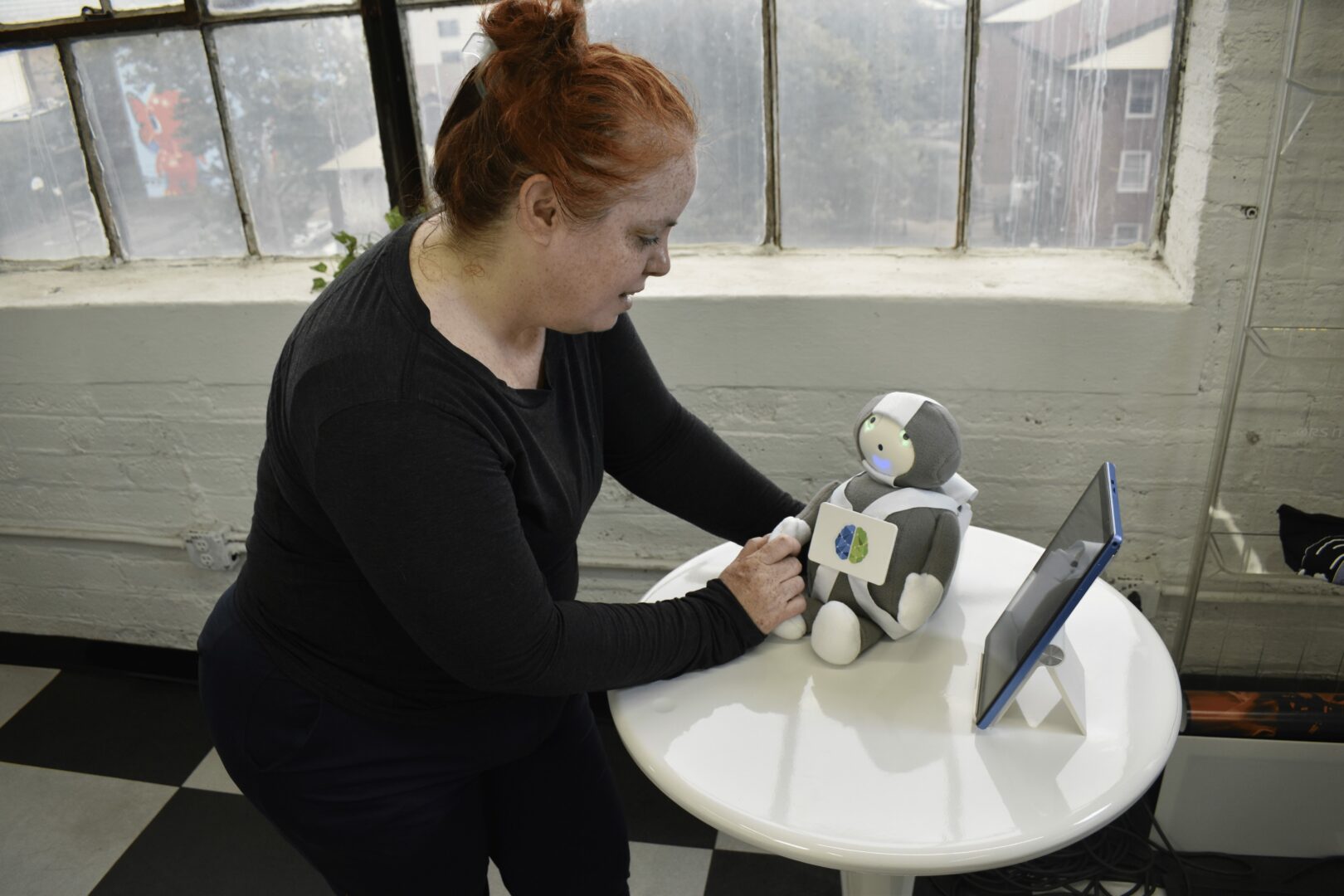
so if you or someone you know deserves recognition please let us know here.

